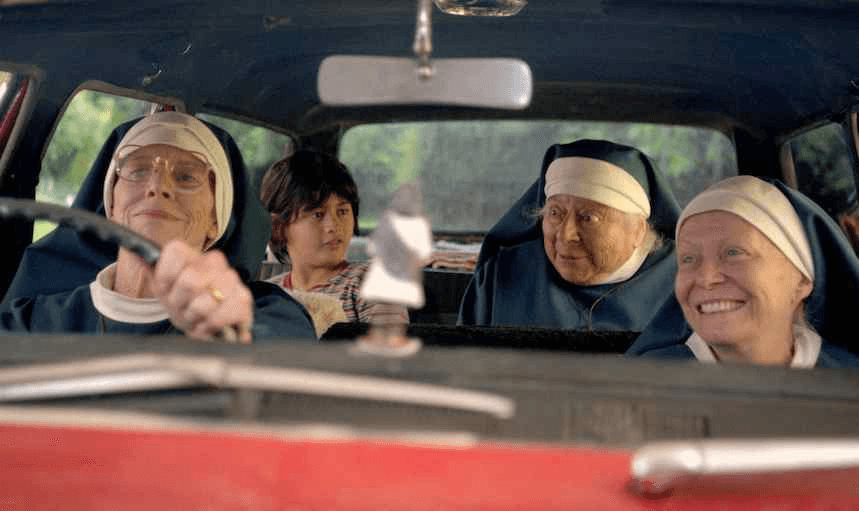Posts from 2020 ‘do not reflect my current views’, says a contestant on the new season of The Bachelor.
Shivani Pragji, a participant in The Bachelor, had told The Spinoff she no longer holds views previously expressed on social media around Covid-19, vaccination and mask-wearing. Screenshots provided to The Spinoff by concerned viewers of the reality TV programme reveal Pragji has in the past year shared on Instagram and Facebook posts comparing mask wearing to “slavery” and questioning the legitimacy of Covid-19 vaccinations.
The 26-year-old, selected for the first single date of this season of TVNZ’s The Bachelor on Wednesday night, has responded by making it clear her perspective has changed. “My intention, at the time, was purely to engage in discussion with my peers and to provide a different viewpoint,” she said. “Covid-19 has shaken up our whole country and at the time these were posted I had a lot of questions about Covid-19 and our approach to this pandemic,” she added, stressing that “these photos do not reflect my actual views currently.”
“To me, this is not ‘just’ a mask,” she wrote in one Instagram post. “This is a loss of freedom and identity.” On Facebook, Pragji shared a Change.org petition advocating against the government’s Covid-19 Public Health Response Bill – the main piece of legislation used to counter the pandemic. Other posts show Pragji accusing Jacinda Ardern of removing “freedom of choice” and sharing memes that attack scientific evidence on Covid-19 tests.
The page has also had at least one post flagged as Covid-19 misinformation by Instagram.
In a statement via TVNZ, Praji, a solicitor, said: “By profession, I am trained to look at all sides of an argument and engage in debates of various discussions – social media provides for a group of like minded and different people who have completely different perspectives, but that is what I enjoy. I welcome any viewpoint, and any discussion that is not considered to be the ‘ordinary’ point of view of your normal average person.”
While the posts are “controversial” and “may have been portraying my views strongly”, she added, she no longer holds those views after having done independent research. “I apologise for this and the way it may have offended people, but we live in a beautiful country where freedom of speech is celebrated and honoured. These photos do not reflect my actual views currently.”
Listen to The Real Pod discuss the first week of The Bachelor NZ here, and subscribe via Apple Podcasts, Spotify or your favourite podcast provider.
A TVNZ spokesperson added that they were “unaware of these social media posts when casting and filming The Bachelor NZ.” These opinions do not inform any part of the programme and do not reflect TVNZ’s position on Covid-19, they said.
Pragji isn’t the first Bachelor contestant to face criticism over Covid-19 opinions expressed online. Season two contestant Naz Khanjani said on Instagram that lockdowns, travel restrictions and quarantine were not “necessary” and that the virus was “just like any other flu”.
Project lead at the Disinformation Project, Kate Hannah, said there was no set type of person that falls down the rabbit hole – anyone is able to be influenced. “What happens is that a conspiracy narrative always has a kernel of truth to it. Somebody who is well-educated and working in a place where they would be exposed to a good information environment; if they’ve clicked into these ideas around self-actualisation through health and wellness, that’s a really hard narrative to shift.”
Hannah said that conspiratorial opinions usually come from people’s lived experiences or those of their loved ones. There has been, she said, a crossover between the health and wellness community and anti-Covid views. “What we’ve seen is there is a confluence of those older ideas that people might think of as being slightly ‘hippy-ish’… meeting up with a modern discourse that if anybody works hard enough, they can be fit and good-looking and ‘well’.”
The wellness narrative can intersect with ideas around the unreliability of science and the medical profession, Hannah said. This week on The Bachelor, Pragji shared a weight loss journey driven by Samba dancing. “People can quite easily go from working hard at the gym and thinking about what they eat to narratives around functional wellness and functional healing and self-healing,” Hannah said. “Those are some of the ones that we see promulgated quite often on Instagram.”
The Bachelor is, Hannah said, almost the pinnacle of that kind of narrative: “That you can, by working really hard in the gym and at your job, transform yourself,” she said.
Journalist David Farrier, who has extensively covered conspiracy theories throughout the Covid-19 pandemic, agreed. “There’s an increasing number of health and wellness influencers sharing blatantly incorrect information and scaremongering on social media, under the guise of ‘just asking questions’,” he said. “It gives dangerous ideas an innocent packaging.”



